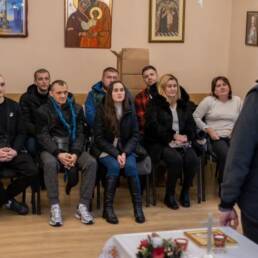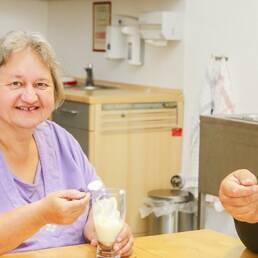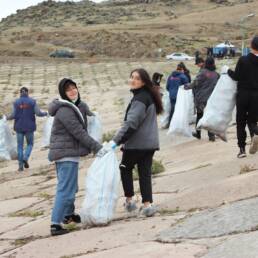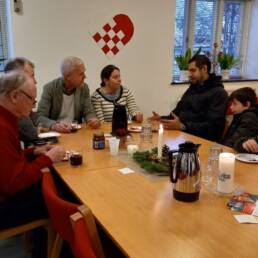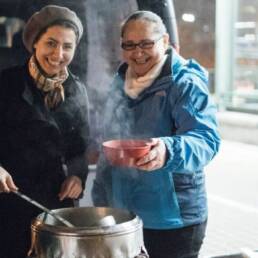Author
Franca Carminati
Responsible of the Elderly Office
Caritas Ambrosiana (Italy)
The elderly are one of the main groups affected by the COVID-19 pandemic and its negative consequences.
This is not only because they are particularly vulnerable to the disease, but also because the preventive isolation measures have aggravated their feelings of loneliness, one of the greatest misfortunes of this period in life.
In fact, many elderly people have no support networks in terms of friends and family, and for many it can be difficult to even move around without assistance. Moreover, the uncertainty caused by COVID-19 leads to anxiety and the confusing ‘infodemic’ leaves people feeling disoriented, and not knowing what is accurate versus disinformation.
To address this situation, in June 2020 Caritas Ambrosiana of Milan launched a telephone hotline called ’4 chiacchiere per stare vicini’ (‘Chats to stay close’). The service is active every afternoon (from Monday to Friday, from 15:30 to 17:30) managed by trained volunteers who answer the phones to listen and talk with callers. The aim of the project is to give the elderly the chance to speak with someone confidentially about their needs, concerns and problems in this time of crisis, and to allow them to be welcomed and listened to in sharing their own stories, experiences and questions.
Two volunteers told us about the work and what they are doing:
Listening to the wealth of life
I am a volunteer on the new listening point for elderly people, created by Caritas Ambrosiana during the first lock-down imposed after the outbreak of the Coronavirus pandemic. After assisting people with their primary and daily needs, it seemed important for us to get closer to those who were facing isolation and the lack of interpersonal relations in a serious way. This initiative was called 4 chiacchiere per stare vicini’ (‘C to stay close’) precisely to meet those people who were experiencing loneliness, isolation and disorientation.
And so, the first phone calls started coming in….
The story I’m telling you today is that of a lady over 80 years of age, who during her long life has experienced moments of great joy. In fact, after a certainly not simple childhood, she got married to a beloved husband and had two beautiful children. However, life also gives you difficulties and suffering: her husband died after a long period of illness and her children, grown, decided to live far away. And so, she found herself alone.
Perhaps all this is making you imagine a sad and melancholy person. Not at all! I heard the story of a full and passionate life. From this conversation, I got a great lesson in life and an injection of vitality and good humour.
So, here is the purpose of these conversations: certainly to listen, but also to receive in return an enormous wealth of painful, wonderful, intense stories… In short, breathe the wealth of life!’
Manuela, 62 years old
At a voice’s throw
I recently became part of the small handful of volunteers of Caritas Ambrosiana engaged in the new service for the elderly ’4 chiacchiere per stare vicini’. This telephone service aims to offer a moment of listening to people who need a little attention or a word of consolation. Through this listening point, elderly people, who in our society are often marginalised and neglected, can tell the ordinary but important facts of their daily lives. And this is not so obvious, especially if you are pretty old.
For me, this initiative was a real gift: in even a brief experience in the field, I’ve realised that a sweet humanity exists. Lives around me asking for not more than a little attention, a little friendly word of comfort, a little consolation for this often difficult and forgotten period in people’s lives.
In fact, the most painful refrain in our telephone conversations is the one that sings, in a low voice for fear of disturbing too much, of the ’loneliness’ of elderly people. And I think this can also be true for those who, like me, think they don’t need any help.
From the stories of these people I realise that during this pandemic human and social relationships are reduced to a minimum. In every story emerges the lack of support that can help give meaning and motivation to elderly people’s days, which are unfortunately monopolised by the routines and the repetitiveness of hours that are always the same. Therefore, I think that the most precious meaning of this telephone line is to try to create, or rather ’recreate’, a bridge of dialogue (and hope) for people who have something to say, but who do not know how to make themselves heard.
Carlo, 80 years old


